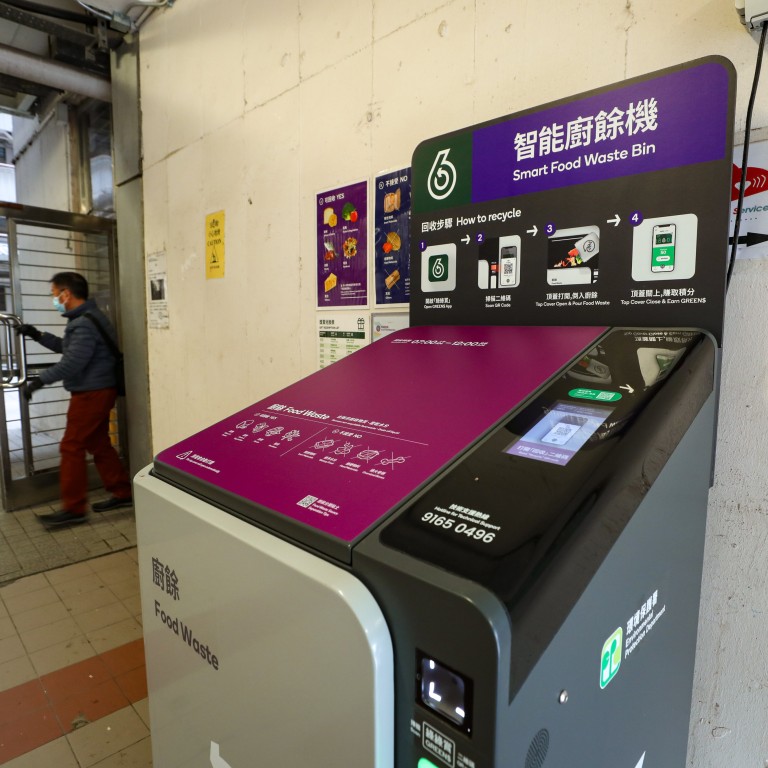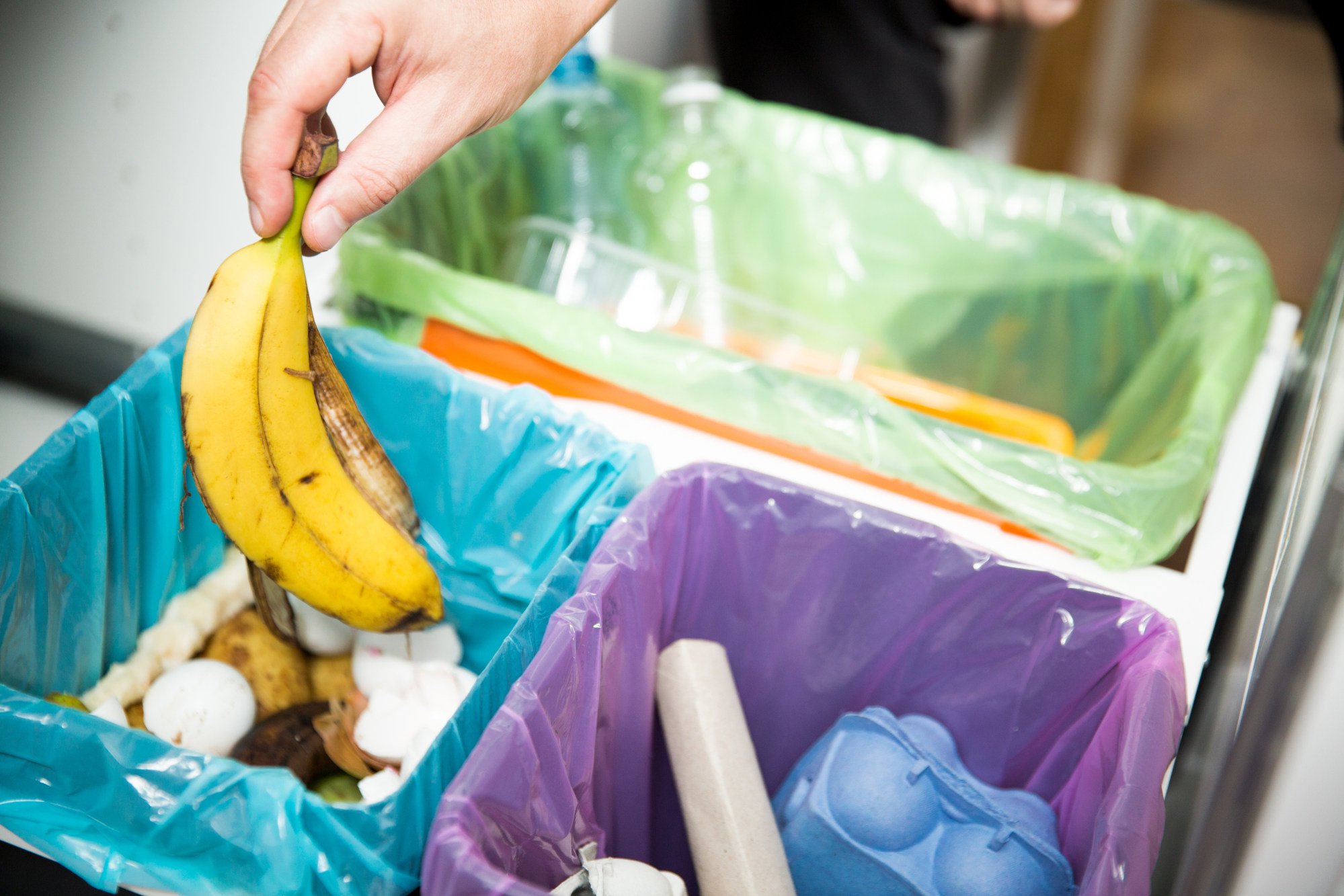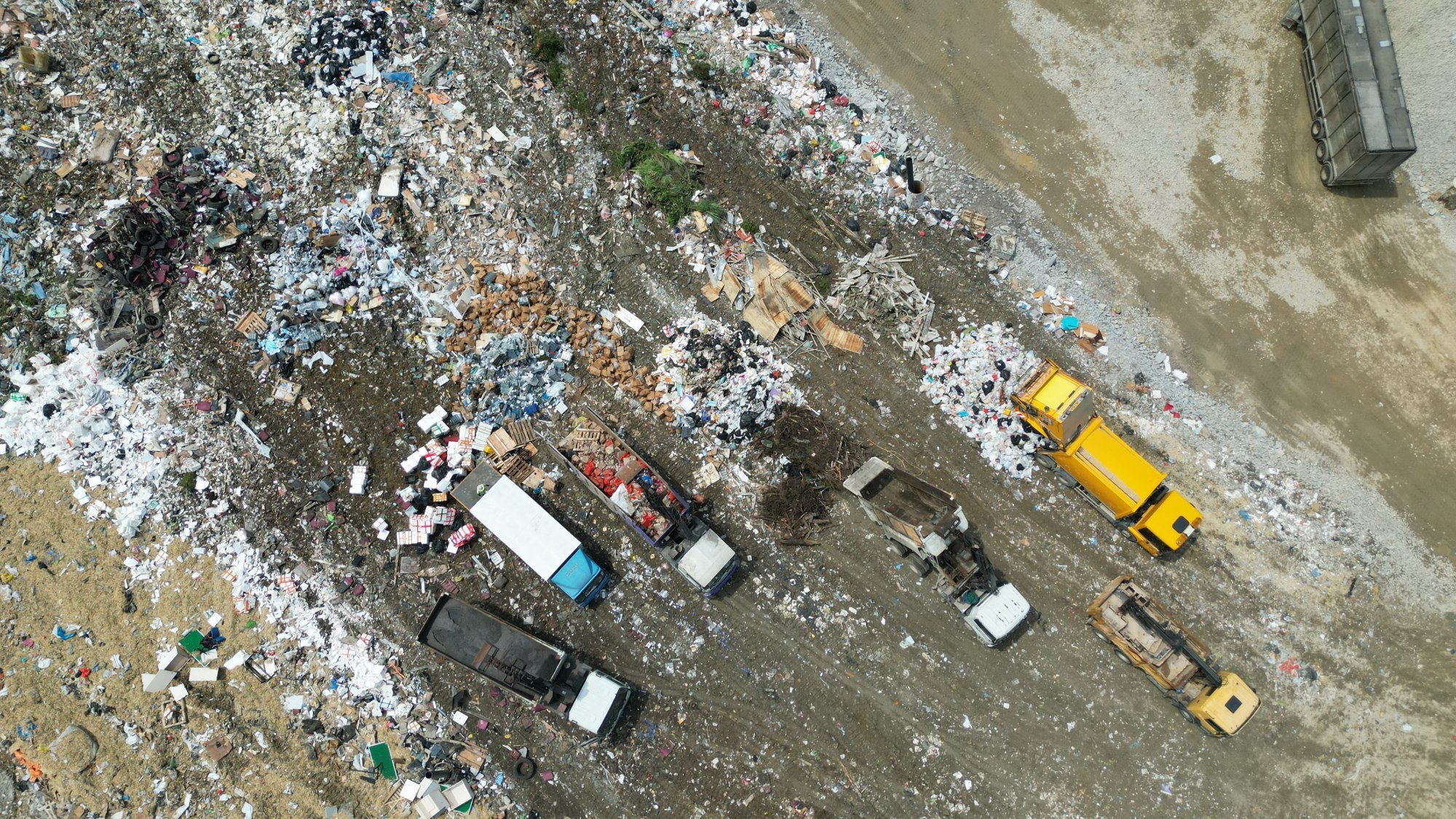
Soup bones and mango seeds: Hong Kong’s food waste recycling drive trips over lack of bins, confusion about what goes where
- Many are still not clear about what is fit to recycle, restaurant owners say it is too much of a bother
- Authorities on track to install more than 700 food recycling bins in public rental housing estates by August
Hong Kong residents and restaurant owners have been slow to recycle food waste because of the absence of incentives and impractical guidelines, lawmakers and industry representatives have said.
Despite years of efforts by environmental authorities, many are still not clear about what is fit to recycle, find separating food waste too much of a bother, or do not know where to bin it.
The city aims to reduce the amount of food waste that ends up in landfills. For years, the authorities have been encouraging people to separate such waste and dispose of it appropriately.
Hong Kong restaurants say plastic ban will cost too much to implement
Recyclable food waste includes everything from rice and pasta to meat, poultry, fruit and vegetables, pastries, dim sum items, coffee grounds and tea leaves.
But large animal bones, crab and seafood shells, corn cobs, young coconuts, durian husks, mango seeds, watery soup, porridge and food packaging are among the items not fit for recycling.

Food waste collection bins have appeared in some housing estates, but there are districts with no such facilities.
The Environmental Protection Department said it was on track to install more than 700 food waste bins in all 213 public rental housing estates by August, covering a third of households.
The government’s collection programmes have got off to a slow start.
In a scheme targeting private housing estates that began last December, there were only 73 responses as of February 16, out of 1,000 households invited to start recycling their food waste.
Hong Kong waste-charging scheme expected to bring in HK$1.79 billion in first year
Out of 3,000 restaurants invited to use food waste collection points set up at 49 refuse stations, only 11 per cent did so last month.
The department said the food waste it handled rose by 30 per cent last year from 2022 to about 60,800 tonnes, with more than 90 per cent coming from commercial and industrial sources.
Simon Wong Ka-wo, president of the Hong Kong Federation of Restaurants and Related Trades, said most outlets were independent, family-run businesses and found it hard to recycle food waste.
“They don’t have the space and staff to separate usable food waste from a pile of non-food and unrecyclable items, such as bones and cutlery,” he said.
“Ordinary people and restaurant owners may not be able to comprehend the guidelines fully.”
For example, he said, while mango peel was considered recyclable, mango seeds were not.
In response to an inquiry from lawmakers in January, the Environment and Ecology Bureau said Hong Kong had 449 public food waste bins across the city. Sha Tin had 62 bins, the most of any district.
But no food waste bins were available at private housing estates in Central and Western, Southern, Sham Shui Po and Tai Po districts. There were none in Wan Chai and Yau Tsim Mong districts.
Lawmaker Scott Leung Man-kwong, of the Kowloon West geographical constituency, said there was no food waste recycling facility at Yau Ma Tei Fruit Market.
As a result, vendors at the city’s largest wholesale fruit market dumped their unsold and damaged products as regular garbage.
While the government targeted larger housing estates with more than 1,000 flats, he said there were very few of that size in Yau Tsim Mong and so there were no food waste collection points.
He suggested the government subsidise smaller housing estates to buy their own food waste bins.
Lawmaker Edward Leung Hei, of the Hong Kong Island East geographical constituency, said residential areas in Wan Chai had mostly single buildings, which did not meet the threshold to apply for a free food waste bin.

The pilot scheme that began last December for private housing estates only allowed buildings with at least 1,000 flats to apply for a food waste bin.
“Although environmental authorities have recently said several single buildings could apply for a bin jointly, it will be quite difficult,” he said. “No one wants their own place to become a dumpster.”
He suggested lowering the 1,000-flat bar and allowing the bins to be placed in public areas such as back alleys.
The department said it had engaged various stakeholders, including the catering sector, property management and environmental hygiene services, to gather feedback.
A spokesman said it would also continue to provide guidance, training, promotion and other resources to encourage food recycling.
